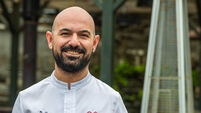Documentary explores the magic of mushrooms

With documentary film ‘Fantastic Fungi’ set to take the world by storm, looks at the fabulous world of mushrooms
I take them before breakfast, one capsule of Lion’s Mane extract, a quarter teaspoon each of powdered reishi and cordyceps. Reishi tastes alkaline, slightly bitter, not unlike cocoa powder, while cordyceps is sweet and fruity.





